Demokratiewerkstätten
[Deutsche Version siehe unten]
About the project
The IDM is setting up new Democracy Workshops in cooperation with the Austrian Parliament and supported by ERSTE Foundation.
The Democracy Workshops in the Austrian Parliament offer workshops for children and young people. They were developed in 2007 by the Austrian parliamentary administration and quickly became a very successful political education project. Young students aged 8-15 deal with different topics under motivating guidance in six workshops: Parliament: The way of a law; Media: How do I get information?; Politicians: Who will represent me?; Participation: My opinion counts; Time Travel: Explore the Republic; Europe: Getting to know the European Union; To this date, around 120,000 children and young people have completed the democracy workshop in Vienna.
With the support of ERSTE Foundation, other parliamentary administrations were able to set up their own democracy workshop, each of which was coordinated with the Austrian Democracy Workshop in terms of format, didactics and standards. The Democracy Workshops in Montenegro (since 2014) and Kosovo (since 2018) have become an integral part of democracy education in their countries, with large numbers of participants. During the visit of National Council President Sobotka to Albania and North Macedonia in spring 2020, the parliaments in Tirana and Skopje reaffirmed their desire to set up their own democracy workshops in cooperation with Vienna. Cooperation in setting up a Democracy Workshops in Bratislava was also discussed during the visit of the Secretary General of the Chancellery of the National Council of the Slovak Republic, Daniel Guspan, to Vienna in autumn 2020.
For the implementation of these plans, the IDM serves as implementing partner. In the course of implementation, the IDM will also intensify the further networking of the existing and new Democracy Workshops in order to continue to support the professional exchange and the high didactic level of the trainers from all countries in coordination with the Austrian Parliament.
Project coordinator:
Call for Expression of Interest for Non-Governmental Organizations to implement the Democracy Workshop Project in the Albanian Assembly
The Austrian Institute for the Danube Region and Central Europe (IDM) supported by ERSTE Foundation invites all interested non-governmental organisations (NGO) in Albania to apply for the implementation of the Democracy Workshops in the Albanian Assembly.
IDM supported by ERSTE Foundation together with the Albanian Assembly as the beneficiary, seeks to implement the Democracy Workshops in Albania with the goal of establishing them as one of the core civic education programmes of the Albanian Assembly.
The Democracy Workshop programme was originally established by the Austrian Parliament in 2007to familiarize young people with the basics of democracy, parliamentary life and media competence in all its aspects. Based on the Austrian model, the programme will be implemented in Albania. It is designed as four-hour workshops through which primary and secondary school children, with the help of selected expert trainers, can learn how parliamentary democracy works through interactive activities and the creation of a media feature.
The goal of the Democracy Workshop programme is to promote an interest in democratic and political processes as well as to contribute to a better understanding of the principles of democracy and to gain knowledge about the role of the parliament in the democratic structure of a state, the parliamentary processes, and the daily work of MPs. The workshops also strive to illustrate additional key elements for political participation: the willingness, the ability, and the courage to express an opinion and media literacy.
The selected NGO will recruit trainers who will receive the necessary trainings to deliver the workshops. The technical equipment required to conduct the workshops will be provided. In addition, the Administration of the Albanian Assembly will provide administrative support and expertise in conducting the workshops. During the initial implementation phase the project will be realized by the Institute for the Danube Region and Central Europe. This initial implementation phase will be completed by the end of May 2023. Following the completion of this phase, the Administration of the Albanian Assembly intends to continue the programme.
Eligible organisations must meet all the following criteria:
· registered according to Albanian law and in full compliance with all Albanian legal requirements;
· proven experience in recruitment and team management;
· proven experience in project management;
· have team members proficient in the English language for work on a day to day basis;
· previous experience in civic education and/or work with school children will be an asset;
· previous experience with projects in the field of democratisation, governance and human rights will be an asset.
Eligible organisations must submit the following documentation:
· letter of interest;
· CV of the person(s) representing the NGO and the working group in charge of implementing the project;
· CV of the NGO and a short description of working field of respective NGO;
· written report on a good practice (up to two pages);
· copy of the NGO registration (“Ekstrakti më i fundit nga Gjykata e Rrethit Gjyqësor Tiranë”);
· certification from the tax authorities that the NGO has no debts with Albanian fiscal authorities (Vërtetim nga organi tatimor që organizata nuk ka detyrime të pashlyera për sa i përket kontributeve për sigurimet shoqërore, sigurimet shëndetësore dhe tatimet);
· certification from the tax authorities that the NGO is active (Vërtetim nga organi tatimor mbi statusin aktiv të organizatës dhe kopje e dokumentit të regjistrimit në organin tatimor, NIPT);
· copy of the most recent approved statute (Kopje e statutit të organizatës që aplikon; varianti më i fundit);
· yearly budget of the organization and official financial disclosures of the last two years (Buxheti vjetor i organizatës, pasqyrat financiare të dy viteve të fundit me firmën dhe vulën e organizatës sipas formatit të deklaruar në organet tatimore);
· copy of any other documentation (e.g., performance report, certificates, awards, publications) that addresses the qualification requirements as listed above.
NGOs may send their application documents as PDF-files, in English, via e-mail to the Institute for the Danube Region and Central Europe, Robin Gosejohann, r.gosejohann@idm.at by 30 September, 2022 (COB).
A certified translation of official documents is not necessary. Please note: any costs incurred for the application will not be covered.
The applications will be reviewed by a screening committee against the listed requirements. Organisations meeting these requirements will be contacted and notified of further steps.
Call for Expression of Interest (as a PDF-document)
Further information:
Information about Democracy Workshops of the Austrian Parliament (German)
Virtual Democracy Workshop (German)
Relevant publications:
IDM Policy Paper Series 1/2021
Home schooling, hybrid-learning and class room teaching: is Covid-19 changing things for good?
Robin Gosejohann
Following the COVID-19 outbreak one year ago, all countries and their education systems in the Danube Region began adopting to the new reality. Hopes were high in spring 2020 that things would look rosier after the long summer break, badly awaited by stressed-out students, teachers and parents alike. In retrospect not surprisingly, things took longer than anticipated. And whilst an end to the pandemic might be far ahead, it is anywhere but near, and education in these circumstances remains under stress.
Über das Projekt
Das IDM errichtet in Zusammenarbeit mit dem österreichischen Parlament und unterstützt von der ERSTE Stiftung neue Demokratiewerkstätten.
Die Demokratiewerkstatt im österreichischen Parlament bietet Workshops für Kinder und Jugendliche an. Sie wurde 2007 von der österreichischen Parlamentsverwaltung entwickelt und schnell zu einem sehr erfolgreichen politischen Bildungsprojekt. Junge Schülerinnen und Schüler im Alter von 8-15 Jahren setzen sich unter motivierender Anleitung in sechs unterschiedlichen Werkstätten mit wesentlichen Themen auseinander: Parlament: Der Weg eines Gesetzes; Medien: Wie informiere ich mich?; PolitikerInnen: Wer vertritt mich?; Partizipation: Meine Meinung zählt; Zeitreise: Die Republik erforschen; Europa: Die Europäische Union kennenlernen; Bis dato haben schon rund 120.000 Kinder und Jugendliche die Demokratiewerkstatt in Wien absolviert.
Mit Unterstützung der ERSTE Stiftung konnten weitere Parlamentsverwaltungen eine eigene Demokratiewerkstatt aufbauen, jeweils in Format, Didaktik und Anspruch eng abgestimmt mit der österreichischen Demokratiewerkstatt. Die Demokratiewerkstätten in Montenegro (seit 2014) und Kosovo (seit 2018) sind feste Bestandteile der Demokratievermittlung in ihren Ländern geworden, mit hohen Teilnehmerzahlen. Beim Besuch von Nationalratspräsident Sobotka in Albanien und Nordmazedonien im Frühjahr 2020 bekräftigten die Parlamente in Tirana und Skopje ihren Wunsch, in Kooperation mit Wien eigene Demokratiewerkstätten zu errichten. Auch beim Wien-Besuch des Generalsekretärs der Kanzlei des Nationalrates der Slowakischen Republik Daniel Guspan im Herbst 2020 wurde eine Zusammenarbeit beim Aufbau einer Demokratiewerkstatt in Bratislava besprochen.
Für die Umsetzung dieser Pläne rings um weitere Demokratiewerkstätten zeichnet das IDM im Einvernehmen mit der österreichischen Parlamentsverwaltung und gefördert von der ERSTE Stiftung verantwortlich. Das IDM wird im Zuge der Implementierung auch die weitere Vernetzung der bestehenden und neuen Demokratiewerkstätten intensivieren, um in Abstimmung mit dem österreichischen Parlament den fachlichen Austausch und das hohe didaktische Niveau der Trainerinnen und Trainer aller Länder weiter zu begleiten.
IDM Policy Paper Series 1/2021
Home schooling, hybrid-learning and class room teaching: is Covid-19 changing things for good?
von Robin Gosejohann
„Die COVID-19 Pandemie hat Schulen letztes Jahr auch in der Donauregion abrupt vor Herkulesaufgaben gestellt. Bildung im Regelbetrieb musste neu und oft anders organisiert werden. Glaubte man zunächst an eine Rückkehr zu business-as-usual müssen sich nun alle – Lehrpersonal, Schülerinnen und Schüler, und auch Eltern – auf bleibende Änderungen einstellen. Das Diskussionspapier greift den hohen gesellschaftlichen Druck auf, unter dem Lehrerinnen und Lehrer arbeiten müssen – und sucht dabei nach begrüßenswerten Entwicklungen, die in diesem Ausnahmezustand (neuen) Schwung bekommen haben. Recht schnell wurden z.B. IT-Fähigkeiten und die entsprechenden Ausstattungen als selbstverständlich angesehen – was die oft erstaunlich analoge Umsetzung in der Schulpraxis umso nüchterner wirken lässt. Die aktuelle öffentliche Aufmerksamkeit für Schulen und ihre Nöte, so das PPS, muss jedenfalls genutzt werden, um bleibende Verbesserungen im Bildungssystem zu sichern.“
Lesen Sie das Policy Paper hier.
Weiterführende Informationen finden Sie hier:
Information zur Demokratiewerkstatt des österreichischen Parlaments
- Projektkoordination: Mag. Robin Gosejohann, MA

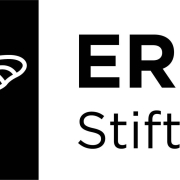
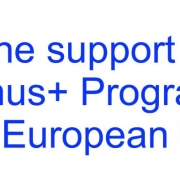


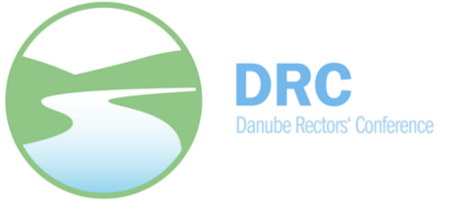
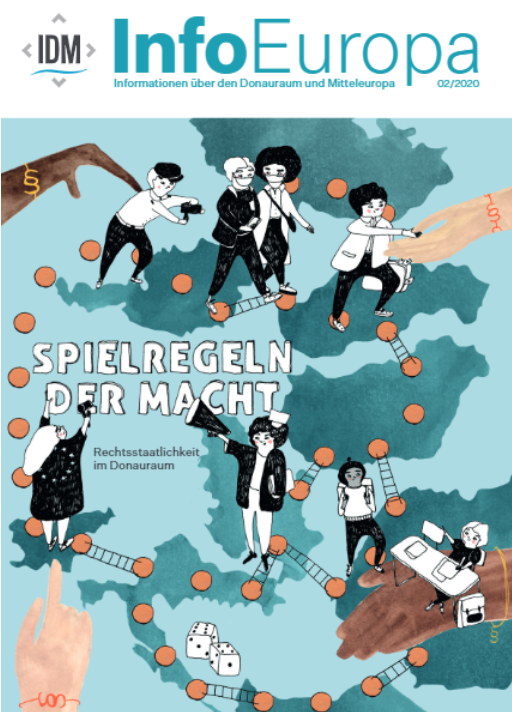
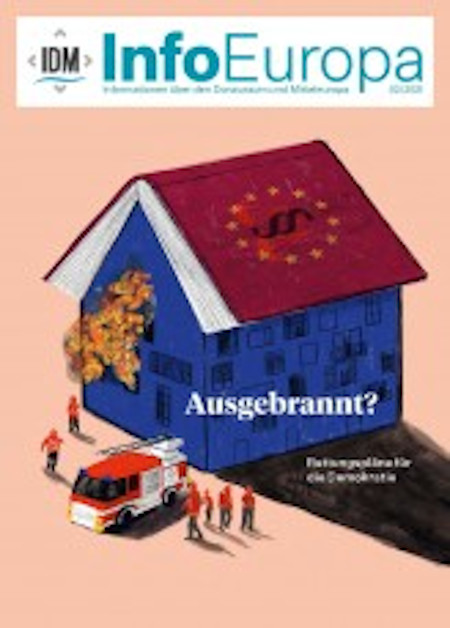
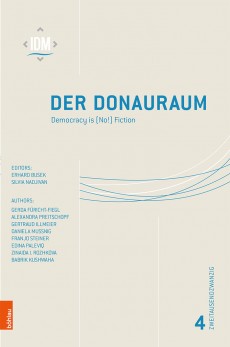
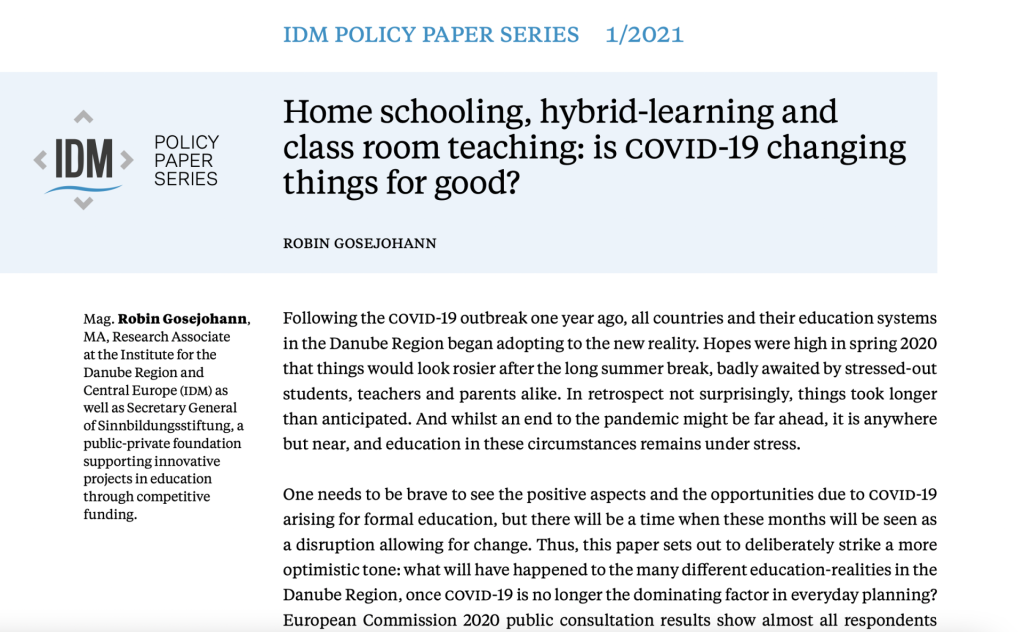
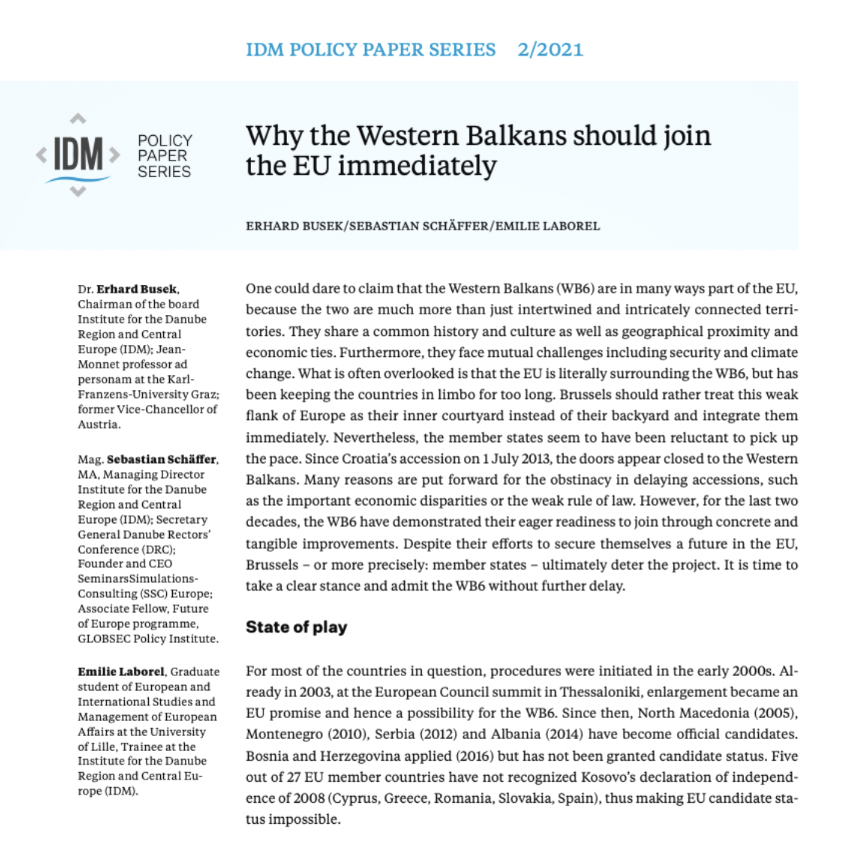


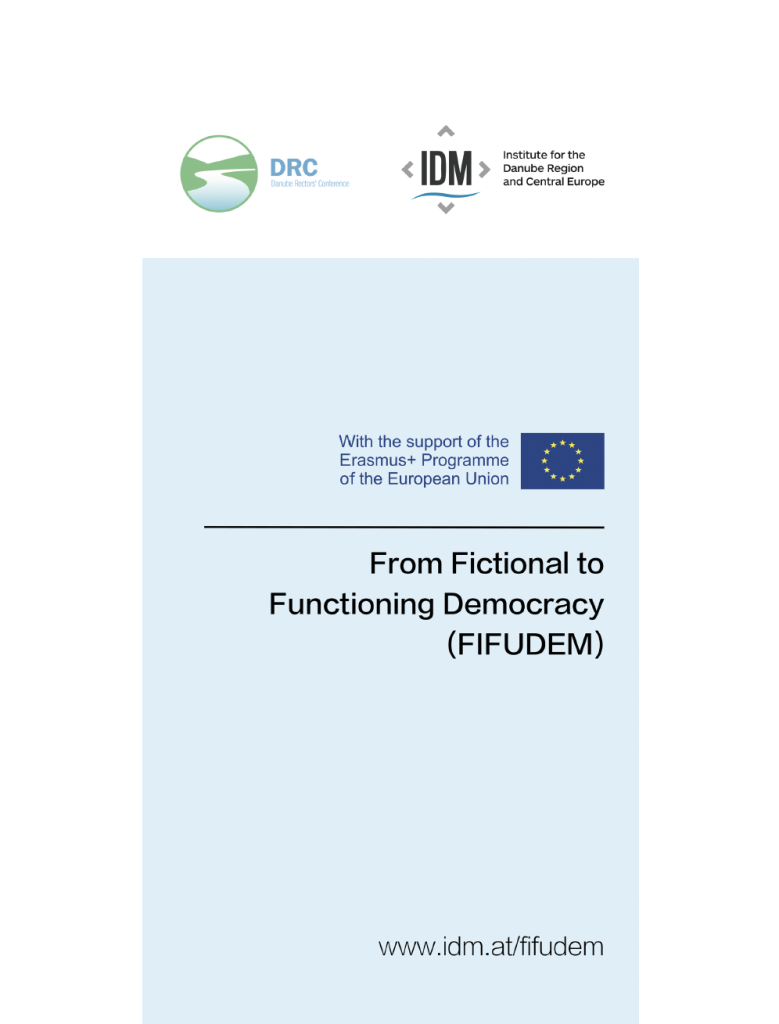
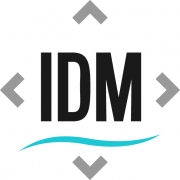

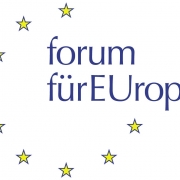









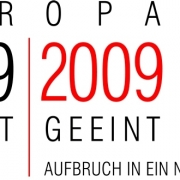
 2009 jährt sich der Fall des „Eisernen Vorhangs“ zum zwanzigsten Mal – Grund genug, um die Entwicklungen dieser letzten zwanzig Jahre nochmals Revue passieren zu lassen und die (teilweise rasanten) Entwicklungen entsprechend zu würdigen.
2009 jährt sich der Fall des „Eisernen Vorhangs“ zum zwanzigsten Mal – Grund genug, um die Entwicklungen dieser letzten zwanzig Jahre nochmals Revue passieren zu lassen und die (teilweise rasanten) Entwicklungen entsprechend zu würdigen.













